10 Things to Know Before You Visit Cashless China 2020
Catalogue
- 1. Chinese Travel Visa
- 2. When You Land
- 3. Purchase a Mobile SIM Card
- 4. Find a Reliable VPN Provider
- 5. Install Google Translate
- 6. Install a Chinese Dictionary
- 7. Download WeChat
- 8. Download Alipay
- 9. Carry Napkins and Toilet Paper
- 10. Electricity and Plug Converters
- BONUS Cultural Tips
Show More
First-time visitors to China can quickly find themselves overwhelmed. Aside from overcoming the language barrier, Western visitors to the Middle Kingdom face myriad challenges. In this short guide, we aim to dispel some rumors least they fester into fact. Armed with these tips and tricks, you’ll soon feel right at home in a nation that’s reshaping the world. What to know about traveling to China?
Here is our list of 10 things to know before you visit China in 2020
Aside from airfare, a Chinese travel visa is arguably the most expensive and cumbersome thing necessary for travel to China. Depending on what passport you hold, you are required to obtain a visa from a Chinese consulate in your country of origin. This applies to all holders of ordinary passports from North America and the European Union. In order to obtain a Chinese visa, contact the Chinese consulate in your country. For the United States, you must contact the consulate covering the geographic region in which you reside. More information can be found on the Chinese embassy’s website in Washington.
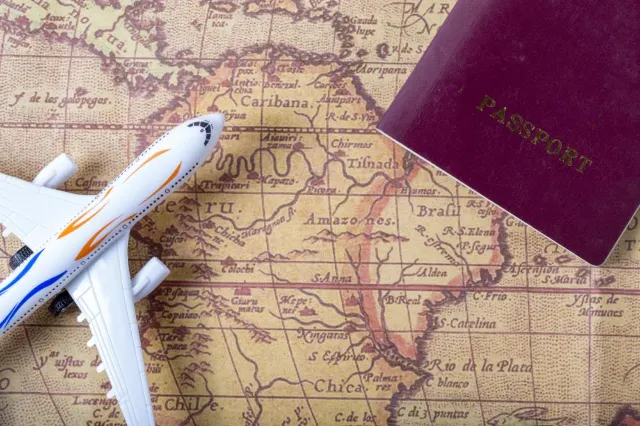
Depending on your plans, you may consider applying for a 72- or 144-hour tourist visa upon arrival. These are available when flying into first-tier cities like Beijing, Shanghai, Guangzhou, and Chengdu, as well as some second-tier cities such as Shenzhen, Nanjing, and Tianjin. In order to obtain a short-term visa-on-arrival, you must hold a valid passport from one of (currently) 53 countries covered by this arrangement. In addition, you must have proof of onward travel out of China. Going this route may be easier for some people; however, keep in mind that short-term visa-on-arrival comes with geographic restrictions that do not allow you to travel freely outside the issuing city or region.

After deplaning and entering the terminal you will first be requested to submit fingerprints (normally at an automatic fingerprint station). From there you will pass through a health inspection screening where authorities scan for those with a fever or other outward signs of illness. Next you must present your travel documents (passport, visa, and arrival card) for inspection. Arrival cards are normally distributed during the flight or are available once you land. If you need to apply for short-term visa-on-arrival, follow the signs to the correct line. After you’re cleared through the frontier inspection, proceed to baggage claim and retrieve your luggage. Finally, go through the customs inspection where you must declare any restricted items you’re carrying. Once past customs you may leave the airport.
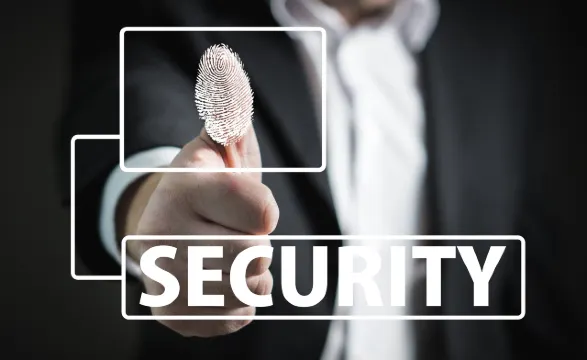

Get yourself a short-term prepaid mobile SIM card. Look for sellers in the airport terminal as you exit. Any d0mestic carrier network will work, particularly in you’re staying in populated areas. China Mobile and China Unicom are arguably the two largest domestic networks. Having a SIM will make your life much easier and enable you to use your mobile phone to access maps or other information when you’re out and about. Moreover, most public Wi-Fi hotspots in cafes or restaurants require an SMS code sent to a valid Chinese phone number. Spend the RMB 50 or so to get yourself a phone card with a few GB of data. You’ll be glad you did.
Unless you’ve been living under a rock, you know the internet is censored in China. This means no Facebook, Google, Twitter, Snapchat, TicTok, Instagram, Reddit, Wikipedia, etc. If you want / need access to these services, you should download and install a VPN service onto your phone or laptop before coming to China. Once you’re here, they’re nearly impossible to get. Though technically not allowed by the government, VPNs are widely used and tolerated so long as you are not using them to violate other laws. A wide variety of free and low-cost VPN options are available nowadays. The important thing is to do your research to find out which work reliably on the mainland, as this is far from guaranteed.
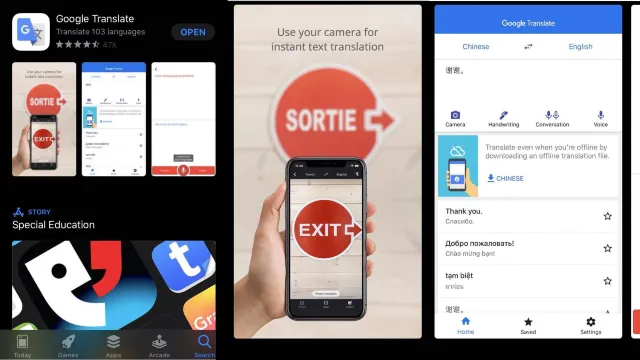
App-based machine translation has progressed remarkably in recent years. For everyday conversation and basic subjects, you will be able to communicate with Chinese people using an app like Google Translate. Make sure you download the offline files for Chinese before you arrive (Google is blocked remember). Downloading the files will give you access to the app even if you don’t have a VPN.
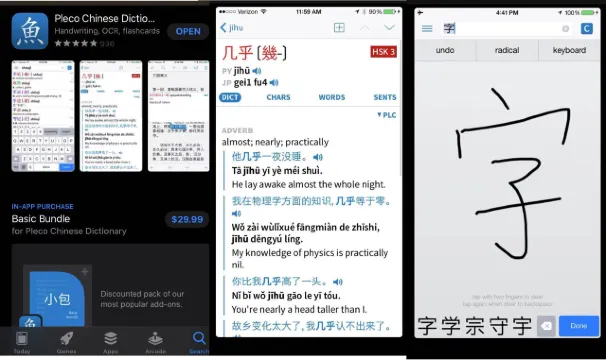
Another handy app is a Chinese dictionary that offers optical or hand-drawn input. We recommend Pleco (available for both iOS and Android). A basic version is free with more advanced features available for purchase. For travelers, the reliable optical character recognition and ability to draw characters make it invaluable if you get in a pinch. How much you intend to travel outside of major cities (where English is more widely spoken) will influence how necessary this recommendation is for you.
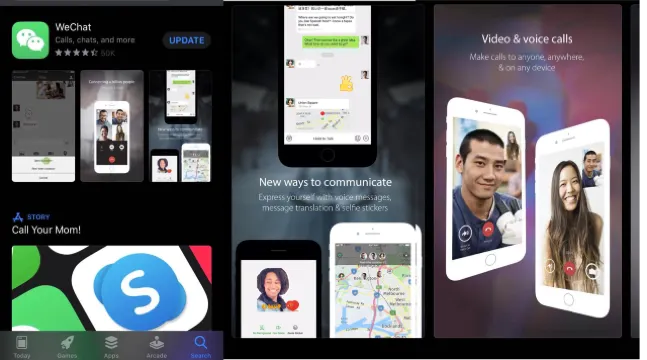
If you spend any time in China, you’ll soon find one app everyone uses for just about everything is WeChat. Friends and people you meet will be pleasantly surprised if you ask to exchange WeChat information with them. It’s the way to keep in touch during and after your trip.
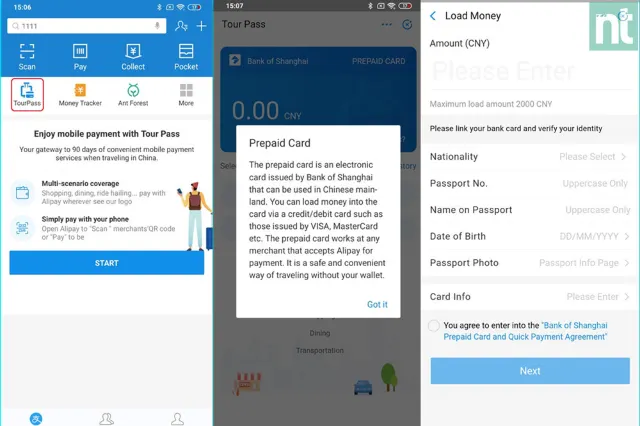
It’s hard for Western travelers to appreciate just how fast China has transitioned to an essentially cashless society. Nowadays everyone (and we mean everyone) uses mobile e-payment systems. Until last year, foreigners who didn’t have a Chinese bank account were simply out of luck. Mercifully, this changed when Alipay rolled out their so-called “Tour Pass.” This allows you to link a foreign VISA, MasterCard, or American Express credit card and purchase a prepaid Alipay account up to RMB 5000. Afterwards you can take advantage of cashless payment in China. Foreign exchange rates track the standard interbank rates. The prepaid account is valid for 90 days and unused balances can be returned to your foreign card. Per transaction fees are capped at 5%.
Set this up before you arrive in China. We CANNOT stress this enough. If you’re going to follow one thing on this list, have it be this one. Mobile payment is how China operates. Of course businesses and restaurants still take cash, but you will quickly discover just how limiting and burdensome it is in contemporary China. Do yourself a favor and take advantage of Alipay Tour Pass.

While ultramodern in some respects, China remains a bit behind the curve when it comes to basic necessities. Make sure you always have extra napkins and toilet paper on hand least your find yourself needing to use the facilities and discovering the dispenser empty (a regrettably common occurrence). You should also be prepared for less-than-ideal bathroom conditions (especially outside major cities). China has come a long way in recent years, but it still has a long way to go. Do yourself favor and pack some extra supplies just in case you need them.
China’s domestic electrical system is based on a 240 volt standard. This is double the 120 volt power found in residential homes in the United States. In addition to packing a plug converter for any of your three-prong devices (North American two-prong plugs are compatible in China), you need to be aware of the voltage difference. Modern electronic equipment such as cellphone and laptop chargers are normally able to accept either 120 or 240 volts. Check the label to make sure. Devices such as hairdryers, curling irons, or other small gadgets are typically not compatible with 240 volts and could catch fire if you try to use them. When in doubt, don’t plug it in!
China is an amazing travel destination. But there are plenty of things that will leave you scratching your head or downright angry. Chinese people can seem unconscionably rude. When faced with a crush of people either out and about or on public transit, it can easily seem like everyone is out for themselves. Pushing on the subway, line jumping, and a maddening lack of respect for personal space are ubiquitous. Realize though people aren’t trying to offend you. This is just how a society of over a billion people has come to evolve. Asserting manners or pointing out every indignity will only leave you frustrated and others confused. Learn to go with the flow, shrug it off, and mutter to yourself, “Well, I guess that’s China.”

Chinese people also have a habit of staring at foreigners. This will happen to you. Don’t get offended if you hear them refer to you as a “laowai.” In the West, we can scarcely imagine getting someone’s attention by yelling, “Hey foreigner,” but that happens in China. It’s not meant as an offense and the person addressing you almost certainly means you no harm. This is another one of those things you just have to roll with when you’re in China. Similarly, expect people to want to take pictures with you. This is less likely to happen in major cities where people are used to seeing foreigners. When traveling in the countryside though, you might well find yourself the center of attention.
If you’re planning a trip to China or just wondering if it makes sense to go, give some consideration to the things we’ve highlighted. These simple tips will greatly improve your experience and make it much easier for you to enjoy yourself. China is a country that does things its own way. Sometimes you’ll feel right at home while other times you’ll feel a world away. Modern China is growing and changing at a pace scarcely imaginable in the West. Come see for yourself this astounding and beautiful nation.
Trending Travelogues
Popular Trip Moments
Popular Travel Types
Popular Attractions
Popular Destinations
Recommended Attractions at Popular Destinations







Site Operator: Trip.com Travel Singapore Pte. Ltd.






